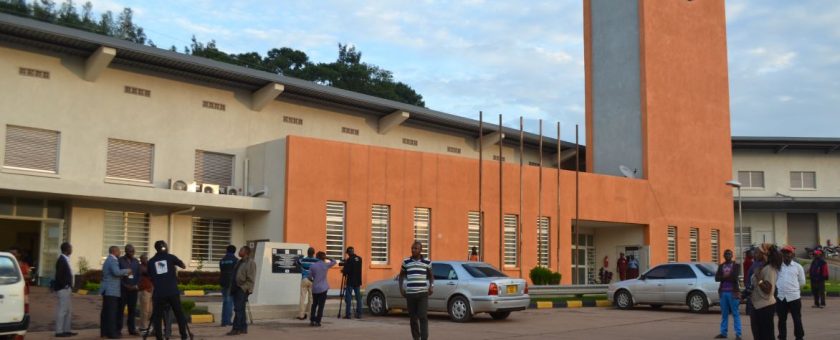TRANSPORTERS along the Central Corridor have reasons to smile as the latest data reveals that the full operationalization of the One Stop Border Posts (OSBP) concept in 2016 has on average slashed transit trucks’ border crossing time by 55 percent compared to 2015.
As of December 2016, crossing time at Rusumo, Mutukula and Kobero OSBPs had dropped by an average of 59.4%, 48.1% and 59.8% respectively, according to a monitoring report produced by the Central Corridor Transit Transport Facilitation Agency (CCTTFA) through its Transport Observatory project, which is supported by TradeMark East Africa.
Under OSBP concept traffic crossing the border need only to stop at one border post. Therefore, a truck carrying goods from the Dar es Salaam Port stops once on one side of the border in Burundi, Rwanda or Uganda where immigration and other customs procedures for the two countries are done concurrently.
This OSBP crossing time is measured from the difference in hours between truck arrival time and departure time at the borders based on Road/GPS Surveys data collected under the Transport Observatory project.
During 2015, average OSBP crossing time for Rusumo, Mutukula and Kobero were around 1:42 hours, 3:51 hours and 5:38 hours respectively but dropped to just 41.4 minutes, 2 hours and 2:16 hours respectively during 2016, when the concept was fully implemented.
The comparison between borders with OSBP (Kobero, Rusumo and Mutukula) and those without OSPB (Rusizi/Ruzizi and Rubavu/Goma) between Rwanda and Eastern Democratic Republic of Congo has also revealed significant gap.
Customs and immigration clearance at Rusizi/Ruzizi during 2016 was 3 :38 hours and 4 :24 hours for Rubavu/Goma, which is a significant contrast when compared to 41 minutes at Rusumo OSBP, 2 hours at Mutukula OSBP and 2 :1 hours at Kobero.
The improvement according to the report was down to member countries and development partners’ resolve to addressing issues identified during OSBP piloting period between 2014 and 2016.
“Public awareness campaigns to the border users and operators especially drivers, as well as improvement of networks and power stability was some of the reasons for this massive reduction of the border crossing time, “said the report.
For instance, in 2015 TTFA Routes Survey, the long delays of fuel transit trucks at Mutukula (Uganda side) was due to dipping process to ascertain the quality and quantity of fuel imported into Uganda, which was resolved.
Constructions of Kabanga/Kobero and Mutukula OSBPs were financed by Trademark East Africa while Rusumo was financed by JICA.
Written by: Faraja Mgwabati

